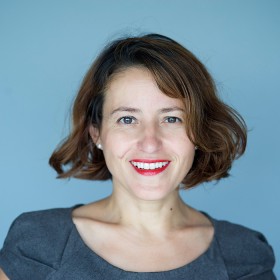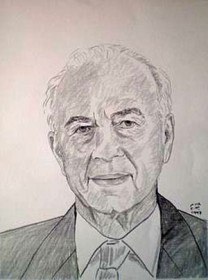Remembering 4 November 1995
Twenty years ago today, 4 November 1995, Israel prime minister, Yitzhak Rabin, was assassinated following a peace rally in central Tel Aviv. Mirjam Wenzel was there.
“It was a mild evening at Kikar Malchei Yisrael (Kings of Israel Square, now Yitzhak Rabin Square) in the middle of Tel Aviv, where throngs of people had gathered under signs of shalom achshav (peace now) to show their support for Rabin and Shimon Peres and their push for peace. The national religious movement had grown more hostile towards the government in recent weeks, and the media had been reporting its demonstrations with posters of Rabin in a SS uniform. No one could imagine, at least not within my circles, that this movement could turn deadly. From the Tel Aviv office of the Friedrich Ebert Foundation, where I had a semester internship, the Oslo Accords were viewed as a political and economic fact. (more…)
Impressions of the “Obedience” Exhibition, from Muslim and Christian Perspectives
During the recent “Long Night of Museums” event, visitors were given a unique introduction to our current temporary exhibition “Obedience. An Installation in 15 Rooms by Saskia Boddeke & Peter Greenaway,” when the imam Emine Erol and the pastor Silke Radosh-Hinder led guided tours together. We asked the two women what they made of the occasion, and whether the joint guided tours had opened up novel views and perspectives on the biblical story.
Ms Erol, Ms Radosh-Hinder, would each of you describe the exhibition in your own words?
Silke Radosh-Hinder: For me, the exhibition is above all an opportunity to examine the story of the Binding of Isaac from a myriad of perspectives.
Emine Erol: The primary focus of the Obedience exhibition is the frame of mind of Ismael/Isaak respectively of his father Abraham. By prompting an emotional response and reflection, it helps visitors understand, ultimately, that such surrender may be dangerous or possibly even fatal—and also to understand what may motivate it. (more…)
The “Daughters and Sons of Gastarbeiters” (guest workers) are the Academy of the Jewish Museum Berlin’s guest on 14 October 2015, part of the “New German Stories” series. As children, these Berlin authors followed their parents to Germany from their home villages in Anatolia, southern Europe and the Balkans, or they were born into working-class neighborhoods around Germany. Their mothers and fathers were supposed to bolster the German economic recovery as mere “guest workers”. The authors tell their personal stories, look back, follow their parents’ paths and thus add to Germany’s culture of memory. In advance of the event, we’ve asked three questions of Çiçek Bacık, the project’s leader and co-initiator:

Çiçek Bacık © Neda Navaee
Ms. Bacık, how did the “Daughters and Sons of Gastarbeiters” come to be and what was the motivation to tell these personal stories?
Last year, I went to a reading with my friend, the journalist Ferda Ataman. We were sitting in a bar afterwards. “Ferda, we have to start telling our stories and share them with others. We ourselves have to shed light on a dark chapter of our past we’ve successfully repressed,” I said. “Sure, and what’s stopping us?” That was the starting point for “Daughters and Sons of Gastarbeiters”. Our first reading took place in January 2015 at the Wasserturm in Kreuzberg. (more…)

